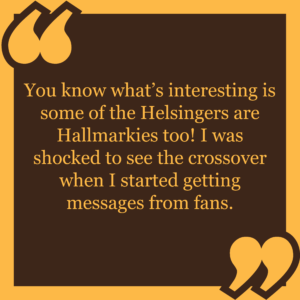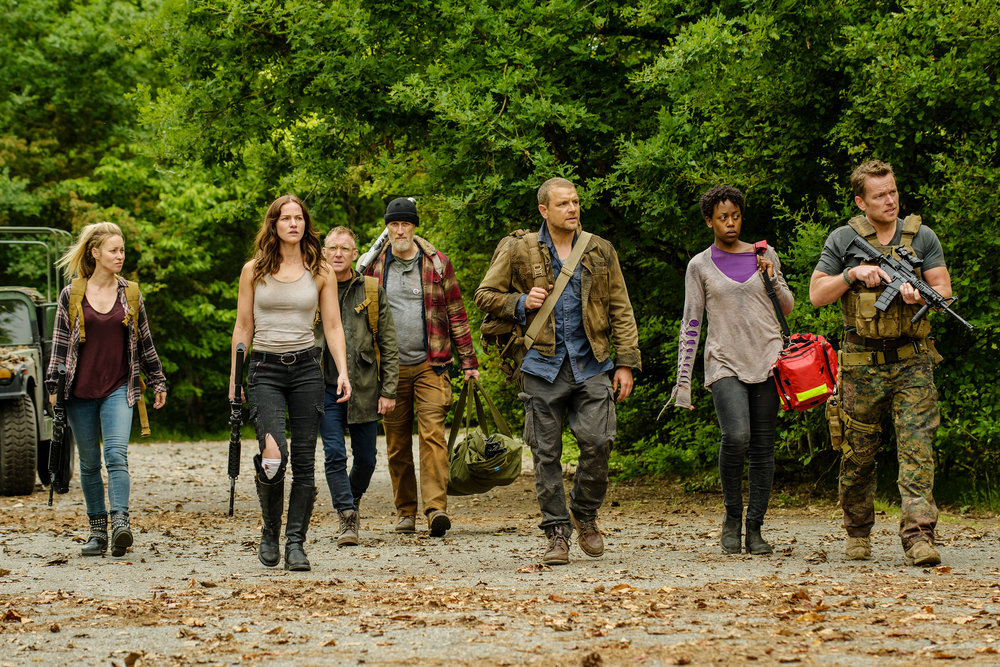 Artist/Band: Gentle Temper
Artist/Band: Gentle Temper
Members: Ryan Meier, Marion Earley
Website: www.gentletemper.com
Hometown: Boston, MA
Latest Album/Release: “Sleep It Off – The Live EP”
Influences: Henry Jamison, Hozier, From Indian Lakes, Bahamas, Shakey Graves
TrunkSpace: How would you describe your music?
Meier: Ocean-folk with a blues tide.
TrunkSpace: Your debut EP, “Sleep It Off,” was released a few weeks ago. How did the process of putting together the EP alter or change the two of you? Did it force you to look at things differently or take a different approach at all?
Meier: To be honest, we put so much time into planning everything for this EP, if anything did change we haven’t really noticed. If nothing else, it opened our eyes to how many different directions something like this can go.
TrunkSpace: “Sleep It Off” is a live EP. Was it important for you to capture particular aspects of your live performance on the recording, and if so, how did you set out to achieve those goals?
Meier: The original goal was actually to do a fully live Audiotree-style EP – there’s something super honest and also flawed about a fully live performance like that. For various reasons we decided to make it more of a documentary style video, while still keeping the fully live takes of the songs. Neither of us had ever done something this raw prior to GT_. It’s sort of like a benchmark for where we’re starting from. We wanted people to get a little peek into who we are and what we do while still staying true to what our live shows are like. Our manager, Becca, organized the whole thing. We brought her the rough idea back in September, she found the perfect people for the task, and kept us all moving. We owe this whole thing to her for sure.
TrunkSpace: Was there a specific reason why you chose a live performance to be your first EP? Do you feel that the vibe of what you two create together is better suited for a stage than a recording studio?
Meier: Studios and stages are completely different animals. Some of our favorite artists are solo artists who stack and stack and stack in the studio until there ain’t no turning back, but still manage to produce raw and honest live performances of those same songs. A friend and mentor of ours had a solid piece of advice for us about recording: “You can get away with recording about 15 percent more than you can perform live.”
We love both atmospheres, really. With there only being two of us, we’re a bit limited in our live performance – it’s a challenge we’re taking head on and we’ve been having a lot of fun making as much noise as we can between the two of us. We just finished recording our first full length and we definitely had some fun playing around with the room we had to get creative in the studio, while still staying within that 15 percent.
TrunkSpace: How did the two of you first come together to form your creative partnership?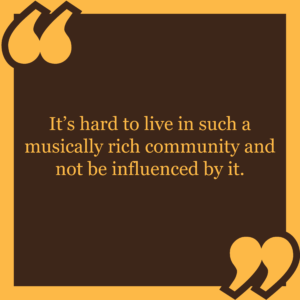
Meier: Marion and I had been going to school together for three years and the only words that had been said between the two of us were something along the lines of, “Hey, nice guitar..”. In our fourth year, we landed in the same ensemble. One day, Marion brought in “Those Shoes” by The Eagles – she’s a big fan of Joe Walsh. Before the semester ended Joe came to our school to give a talk. They sold out of tickets, but we snuck in anyway and listened to the man wax philosophical. We started hanging out, listening to music together, and it snowballed from there. We formed our duo in August 2016.
TrunkSpace: How has Gentle Temper changed the most since you two first started writing music together to where you are today?
Meier: When we started about a year and a half ago, we were one vocalist, and one vocalist/guitarist. Now we are one vocalist/bassist/percussionist, and one vocalist/guitarist/percussionist. We also just recently got haircuts.
TrunkSpace: What does your songwriting process look like? How do most Gentle Temper songs go from inception to completion?
Meier: We write in many different ways, it’s a pretty sporadic process. The first song we played together (“Heavy Handed”) I had written entirely and Marion added some very beautiful harmonies and later a bass line. We write poems, or parts of songs, or full songs separately and then bring them together. Sometimes we write entirely together. We’re really at the mercy of ourselves when it comes to writing.
TrunkSpace: You guys are Boston-based, which is a city rich in folk music history. Do you believe that a songwriter’s surroundings directly impact their art, and if so, how has Boston influenced you?
Meier: We definitely draw a lot from the current scene. Maybe not Boston’s folk history specifically, but by the way it’s formed everything that’s here now, we owe a lot to it. Our friends and family have lived and still live in Boston and they’re all involved in the music scene in one way or another. It’s hard to live in such a musically rich community and not be influenced by it.
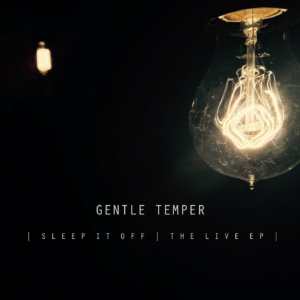 TrunkSpace: Boston is also known for being a creative city filled with artists of all flavors. Does that creative vibe inspire your own internal creativity?
TrunkSpace: Boston is also known for being a creative city filled with artists of all flavors. Does that creative vibe inspire your own internal creativity?
Meier: Absolutely. We are surrounded by amazing artists and friends who we admire. They make a variety of different styles of music and art and it’s immensely inspiring. The creativity flowing through this city is truly boundless.
TrunkSpace: Social media makes it possible to reach anybody anywhere these days, but at the same time, it seems more difficult than ever to get people engaged. How do the two of you approach getting the word out about Gentle Temper and to break through all of the surrounding noise that seems to inundate people on a daily basis?
Meier: Social media isn’t a very straight forward platform, I think it needs to be taken with a grain of salt on all fronts. For us, honesty is the best policy and we do our best to stick by that and not take ourselves too seriously. In terms of getting the word out about GT_, this is our first big release and we’ve been doing our best to get it onto as many platforms as we can. We’ve also been releasing a couple of covers and plan to keep them rolling as long as we can.
TrunkSpace: As you look towards the future, where do you hope to see Gentle Temper go? What do you hope to accomplish together?
Meier: After putting out our first two releases late last year with Northeastern’s Green Line Records, we’re just trying to keep the momentum going. We’re currently working on a full length album that we finished recording in December at Red Bull Studios NYC with our friend and phenom Peter Geiser.
While we have a five year plan, it helps to also have a “tomorrow” plan and to just keep at it, get enough sleep, drink plenty of fluids, and enjoy all of it as it comes at us. We’d love to break into the festival circuit and start branching out from Boston toward Portland and further south, eventually stretching our musical limbs across the US to the west coast. We’re big on traveling and visiting family, so those are huge perks of becoming touring musicians as well.
TrunkSpace: What can fans expect from Gentle Temper in 2018?
Meier: Lots more shows in and around the greater Boston area, our first full length studio album, a few more videos, and a couple of surprises along the way!
Sign up to our email list to keep up with all things GT_!





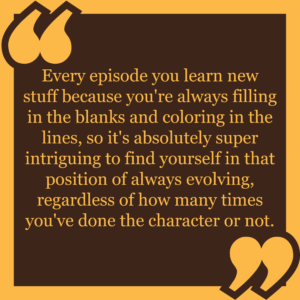
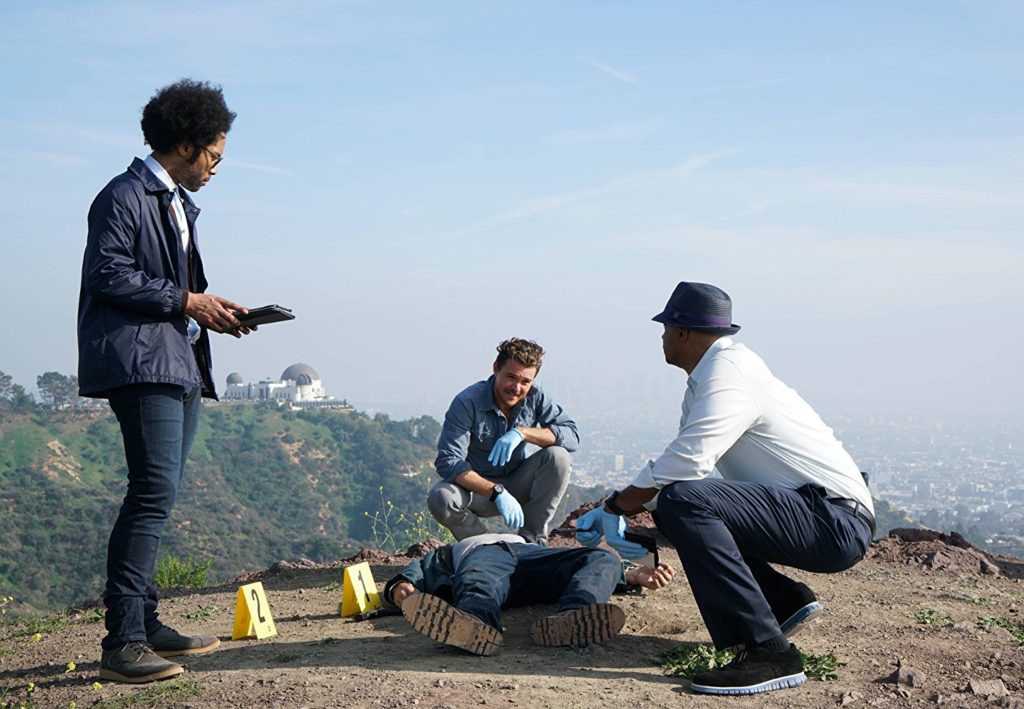
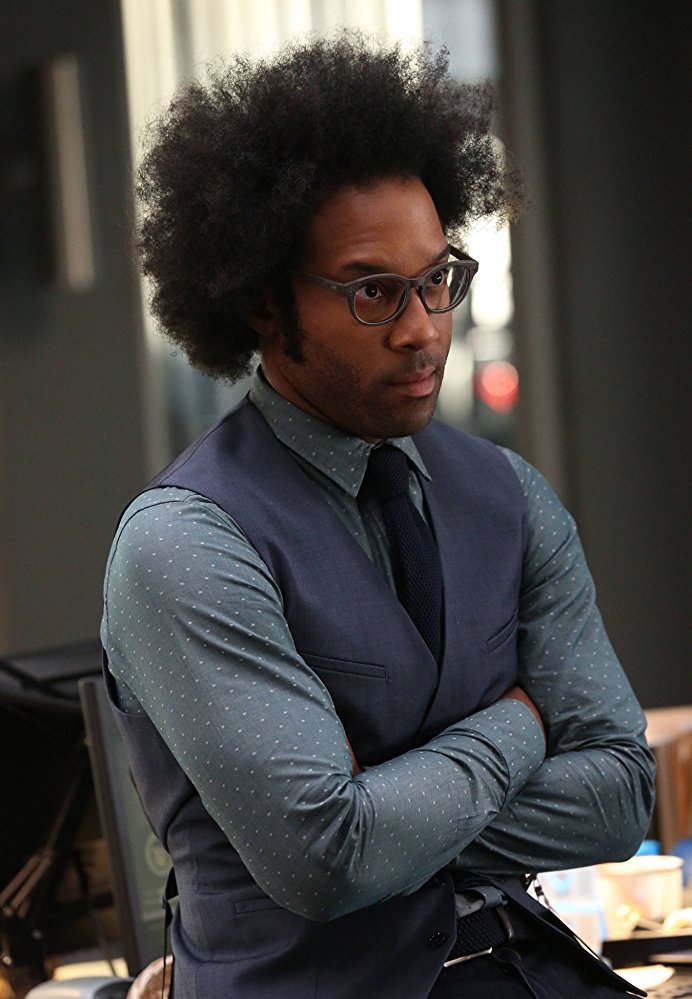 TrunkSpace: And of course, there’s expectations to live up to when something is based on something else.
TrunkSpace: And of course, there’s expectations to live up to when something is based on something else.
 In our ongoing feature Between the Sheets, TrunkSpace picks the imaginative brains of authors to break down what it takes to create the various worlds and characters they breathe life into via the tools of their trade… sheets of paper. While technology continues to advance and change the pop culture landscape, the written word has remained one of the most consistent and imaginative art forms.
In our ongoing feature Between the Sheets, TrunkSpace picks the imaginative brains of authors to break down what it takes to create the various worlds and characters they breathe life into via the tools of their trade… sheets of paper. While technology continues to advance and change the pop culture landscape, the written word has remained one of the most consistent and imaginative art forms.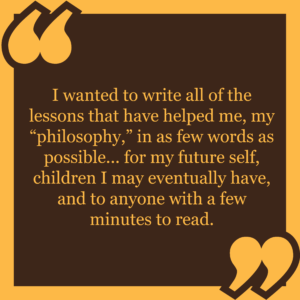

 It has been over five years since Ryan Scott Graham first released “Everything But What You Need,” the debut album from the multi-instrumentalist’s solo project, Speak Low If You Speak Love. (It was reissued by Pure Noise Records in 2015.) As the bassist and backing vocalist for State Champs, Graham is no stranger to juggling musical genres, but even he admits to experiencing nerves on the eve of releasing his solo sophomore, “Nearsighted,” which he describes as a “new direction.”
It has been over five years since Ryan Scott Graham first released “Everything But What You Need,” the debut album from the multi-instrumentalist’s solo project, Speak Low If You Speak Love. (It was reissued by Pure Noise Records in 2015.) As the bassist and backing vocalist for State Champs, Graham is no stranger to juggling musical genres, but even he admits to experiencing nerves on the eve of releasing his solo sophomore, “Nearsighted,” which he describes as a “new direction.”


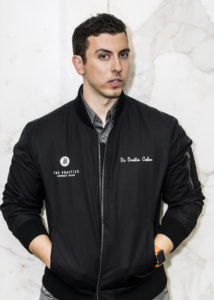

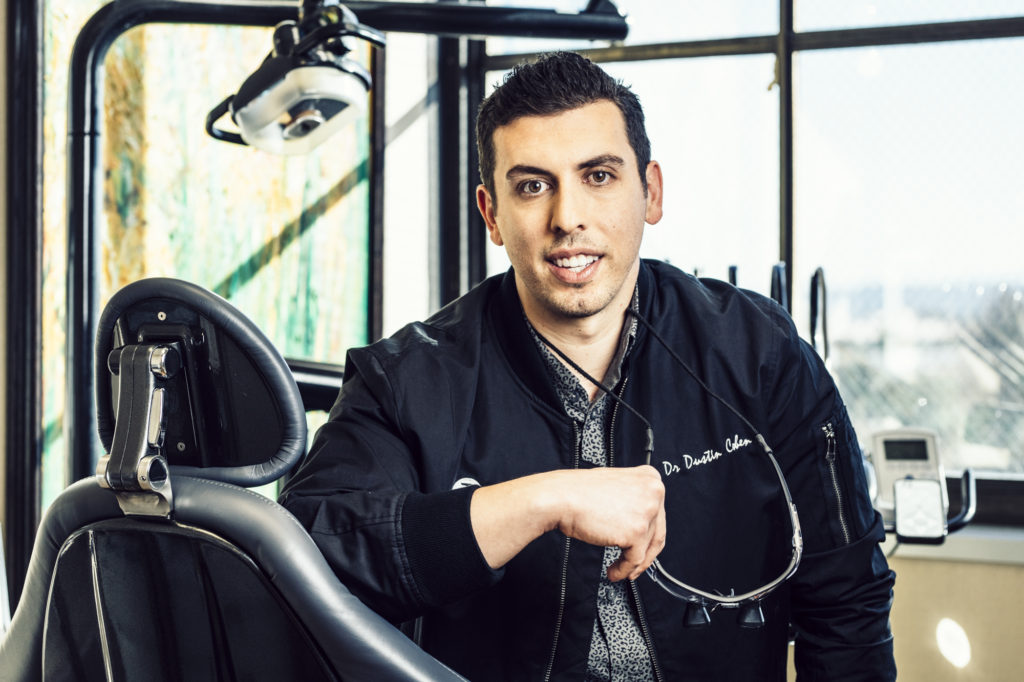
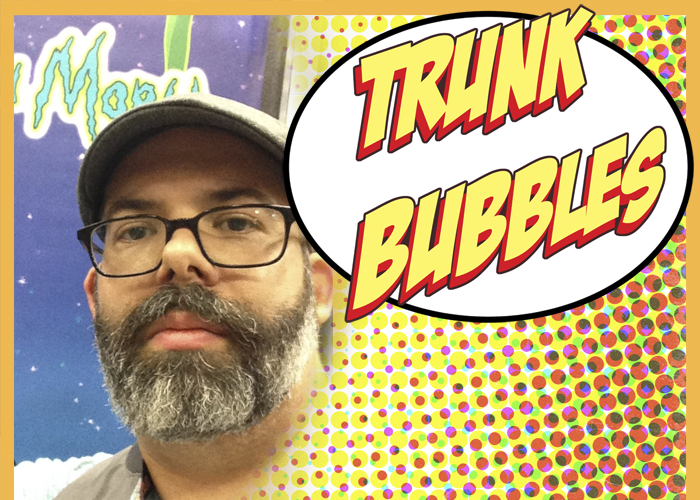
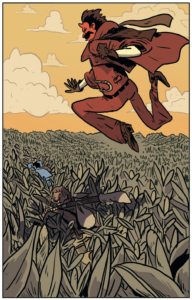 Name: Kyle Starks
Name: Kyle Starks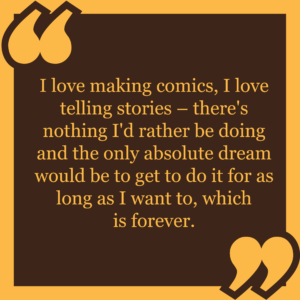
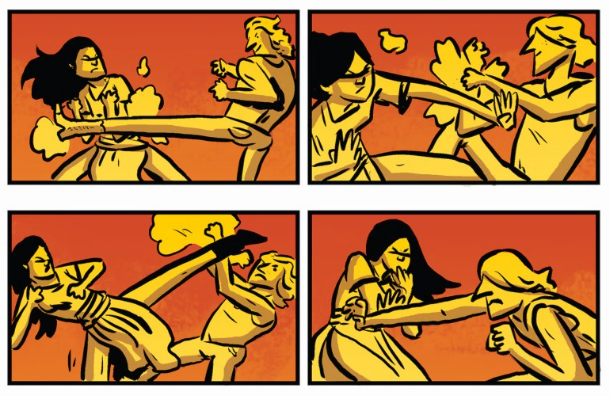
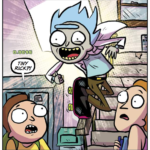 TrunkSpace: What advice would you give another young aspiring artist who is considering a career in the comic industry?
TrunkSpace: What advice would you give another young aspiring artist who is considering a career in the comic industry?
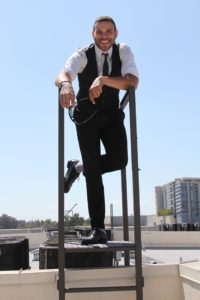
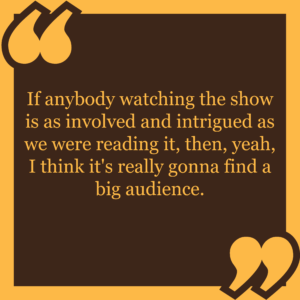 flippers and fins and intrigue and mystery and all of that other stuff, which is great and awesome, and I enjoy it – I enjoy genre TV like anybody else – but I think the thing that keeps you coming back and makes you really passionate is the people. I tip my hat off to them (the writers) because I was just so excited to get a script every time, because we would just eat it up and just zoom right through every script. It was the only opportunity for us to be fans, because it’s spoiled for us. We already know what’s happening. If anybody watching the show is as involved and intrigued as we were reading it, then, yeah, I think it’s really gonna find a big audience.
flippers and fins and intrigue and mystery and all of that other stuff, which is great and awesome, and I enjoy it – I enjoy genre TV like anybody else – but I think the thing that keeps you coming back and makes you really passionate is the people. I tip my hat off to them (the writers) because I was just so excited to get a script every time, because we would just eat it up and just zoom right through every script. It was the only opportunity for us to be fans, because it’s spoiled for us. We already know what’s happening. If anybody watching the show is as involved and intrigued as we were reading it, then, yeah, I think it’s really gonna find a big audience.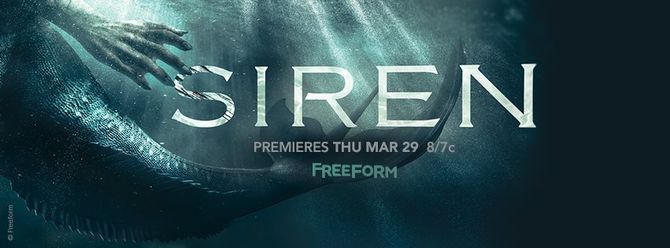
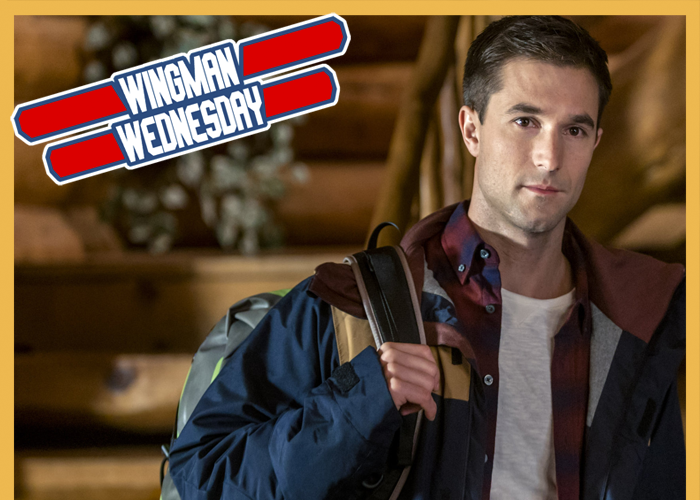
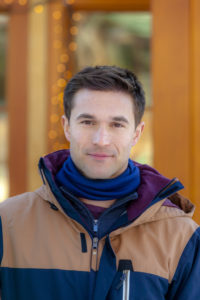

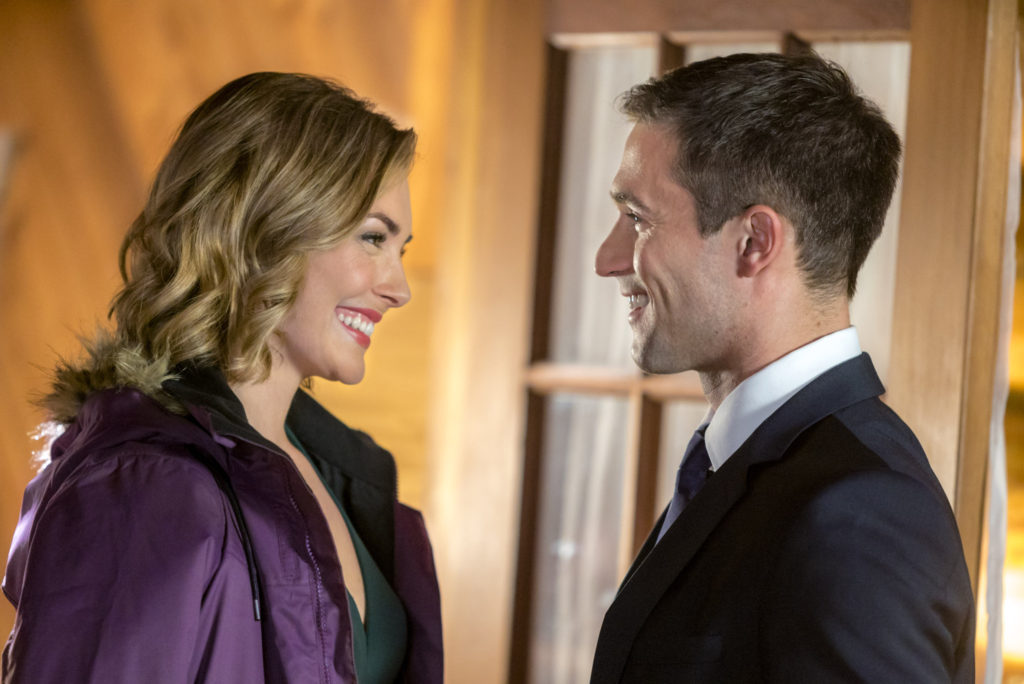
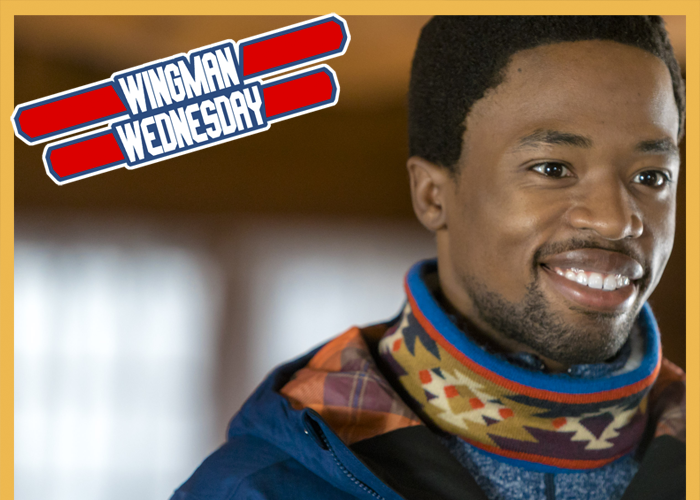
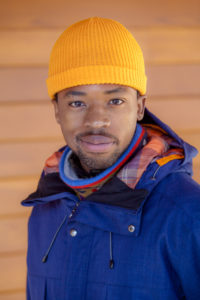

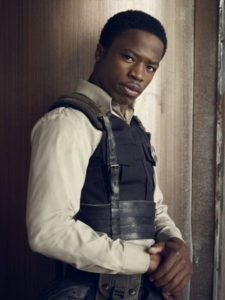

 Yes, we’re counting the days until wind chills are no longer a factor in our daily clothing choices and Nor’easters are Nor’more, but until then we’re embracing the sentimental glow of the season – warming ourselves at the foot of the fireplace, indulging in home-cooked comfort foods, and of course, settling in under a heavy blanket and watching Hallmark Channel’s Winterfest programming event.
Yes, we’re counting the days until wind chills are no longer a factor in our daily clothing choices and Nor’easters are Nor’more, but until then we’re embracing the sentimental glow of the season – warming ourselves at the foot of the fireplace, indulging in home-cooked comfort foods, and of course, settling in under a heavy blanket and watching Hallmark Channel’s Winterfest programming event.